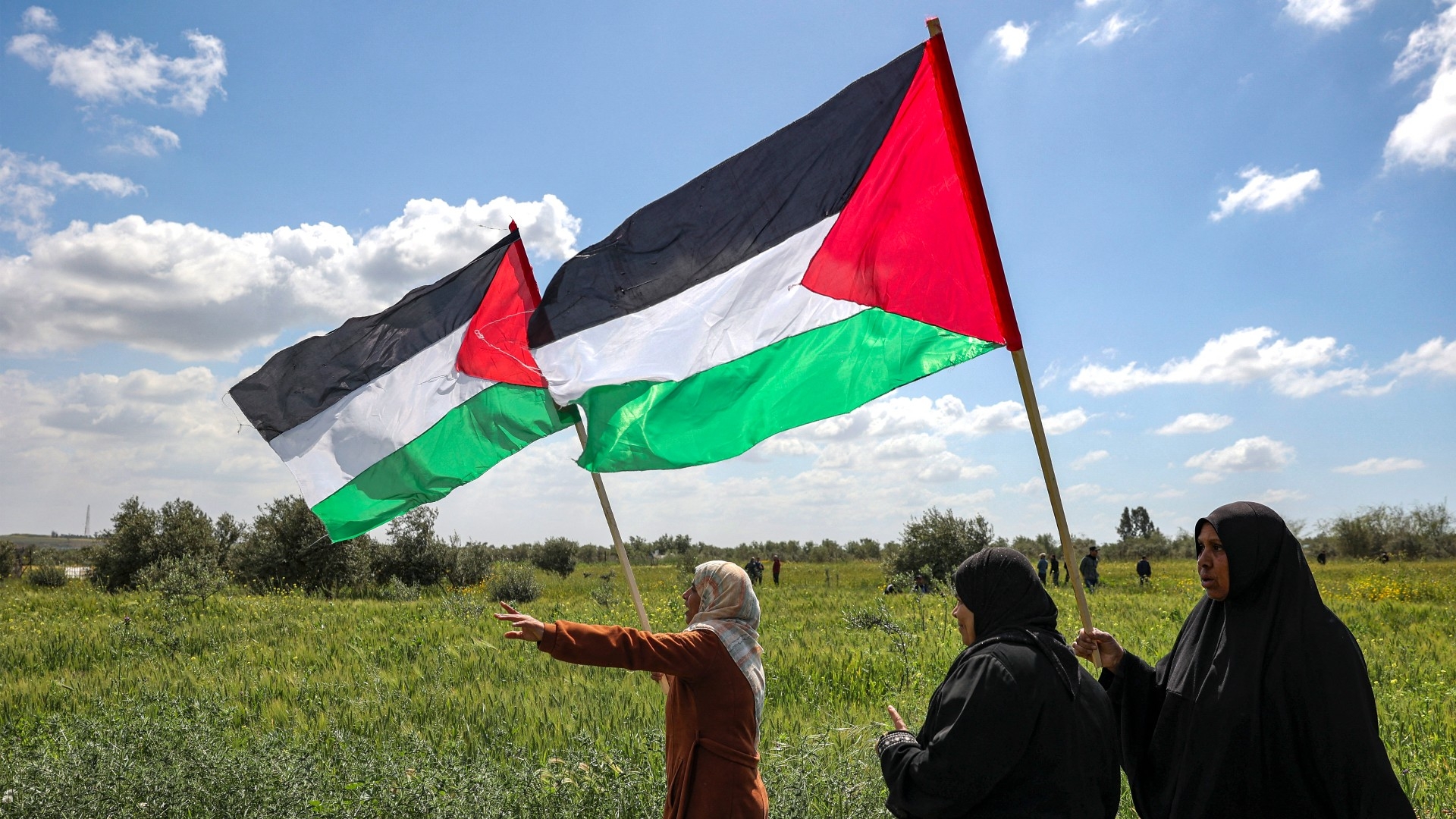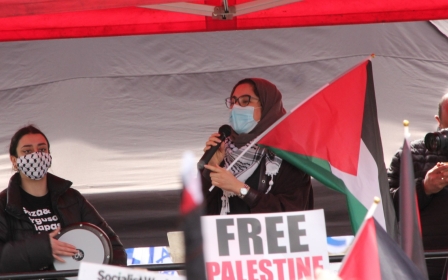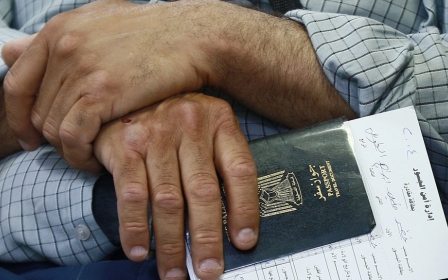Palestinians mark Land Day against background of Israeli land theft

Palestinian citizens of Israel and Palestinians in the occupied West Bank, East Jerusalem, and the Gaza Strip commemorated Land Day on Thursday with marches, protests, and speeches.
Thursday marked the 47th commemoration of Land Day, which marks when in 1976 thousands of Palestinians in Israel's northern Galilee region rose up in protest against Israeli land theft and were confronted by Israeli forces, who killed six protesters.
The day is also seen as significant because it's deemed to mark the first time that Palestinian citizens of Israel organised collectively against Israeli policies.
Protests in Israel on Thursday started in the northern Palestinian city of Sakhnin.
Demonstrators marched across the town holding the Palestinian flag, reaching the cemetery where the six Palestinians were buried almost five decades ago.
Speaking to the Palestinian outlet Arab48, one of the organisers of the protest said: "The main issue and our struggle with the Zionist movement was, is, and will remain to be the issue of land, and we are still suffering from racist policies in everything related to land and housing.”
Palestinian citizens of Israel make up around 17.5 percent of the country's population and are descended from Palestinians who were not expelled by Zionist militias during the creation of Israel in 1948.
They hold Israeli citizenship and are often referred to as Arab-Israelis, but the majority identify as Palestinian.
In Gaza, Palestinians marched along the boundary between the besieged enclave and Israel.
Israeli forces responded by firing tear gas at the protesters.
In 2018, Palestinians in Gaza began the Great March of Return protest movement on Land Day, when tens of thousands of people conducted weekly demonstrations on the boundary demanding their right to return to homes they were expelled from during the 1948 Nakba.
The March of Return protests continued for a year and a half and were met with a brutal response by Israeli forces, who killed more than 200 demonstrators.
Land rights
Recently, Israeli opposition organisations and activists have called on the European Union to apply sanctions on a senior Israeli politician in charge of approving illegal settlements in the occupied West Bank.
They targeted Natalia Averbuch, who is in charge of Israel’s Civil Administration’s Higher Planning Council in the West Bank, an authority that approved the building of 7,287 housing units in settlements in February.
“The settlement causes severe damage to the Palestinian population living in its vicinity - beyond the plundering of private pastures and agricultural lands of the Palestinian communities, each settlement creates new security arrangements for the settlers and new restrictions on the freedom of movement and work of the Palestinians,” the letter said.
The illegal settlements approved in 2023 already outpace what was approved in 2022 and 2021, which were 4,427 and 3,645 respectively.
Earlier this month, Israeli MPs approved a controversial piece of legislation that would allow four abandoned Jewish settlements in the occupied West Bank to be re-established after they were dismantled in 2005.
It also permits Israeli settlers to return to areas of the West Bank evacuated in 2005 as part of then-Prime Minister Ariel Sharon's disengagement plan.
Middle East Eye propose une couverture et une analyse indépendantes et incomparables du Moyen-Orient, de l’Afrique du Nord et d’autres régions du monde. Pour en savoir plus sur la reprise de ce contenu et les frais qui s’appliquent, veuillez remplir ce formulaire [en anglais]. Pour en savoir plus sur MEE, cliquez ici [en anglais].




